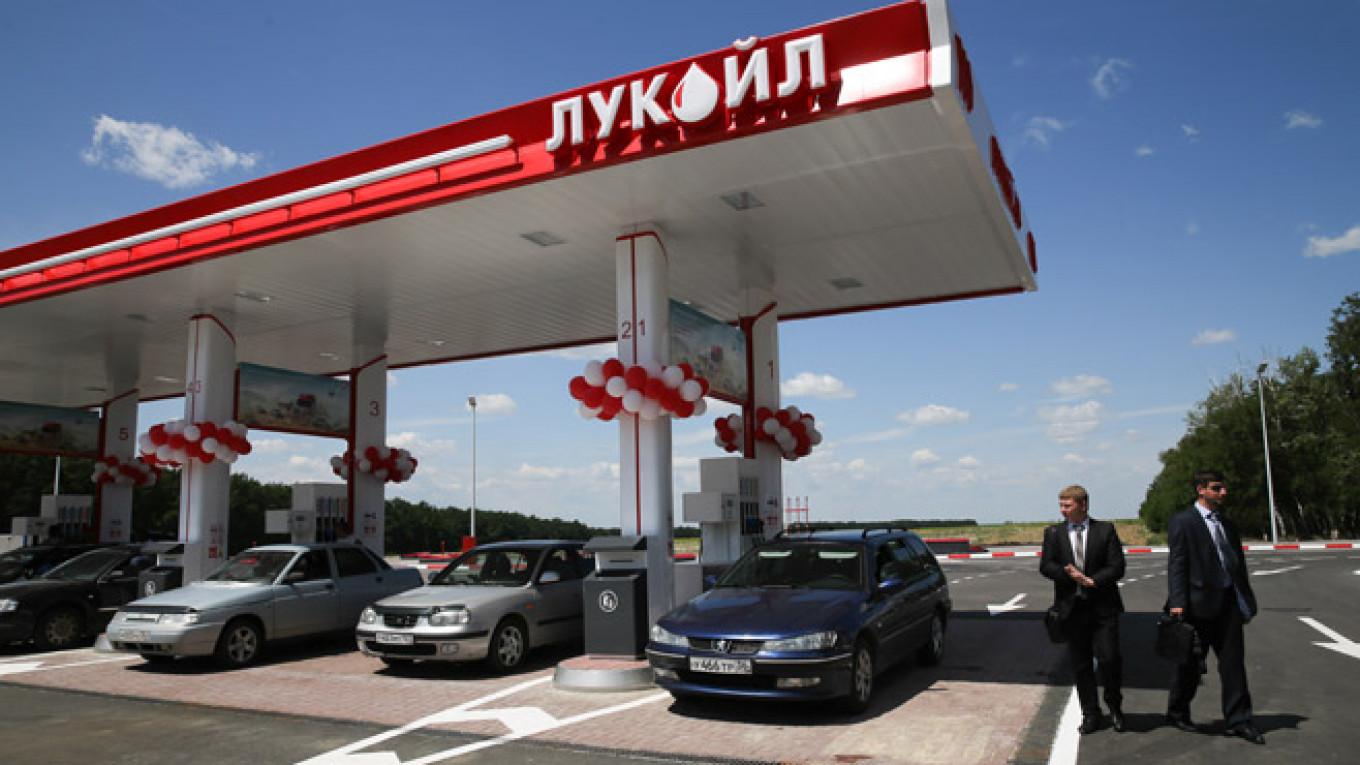Russia's biggest private oil producer, LUKoil, is seeking support from the government to help it weather Western sanctions that have locked it out of international capital markets, a few weeks after energy giants Novatek and Rosneft applied for multibillion-dollar state bailouts.
"LUKoil has asked for support to get access to [Russia's] bank of undistributed hydrocarbon reserves," Deputy Energy Minister Kirill Molodtsov was quoted by news agency TASS as saying Thursday.
Licenses to develop natural reserves are granted after auction by federal agency Rosnedra. Last year Rosnedra said Russia had only three undistributed deposits left on the mainland, with total discoverable reserves equal to 140 million tons of oil. Russia's annual oil production is a little over 500 million tons.
The latest wave of sanctions imposed by the United States and the European Union on Russia this month over the crisis in Ukraine restricted still further Russian energy giants' access to international capital, undercutting their ability to service debt and fund their investment programs. They also banned Western companies from participation in exploration or production in Russian Arctic offshore, deep-water or shale projects.
Rosneft, Novatek and LUKoil have all been targeted with sanctions.
Rosneft and Novatek have already gone cap in hand to the government, with Rosneft lobbying for 1.5 trillion rubles ($40 billion) and Novatek requesting 100 billion rubles ($2.5 billion). The government is considering giving the companies $3.9 billion each from the National Welfare Fund, an $85 billion piggy bank intended as a backstop to Russia's pension system.
Vagit Alekperov, the head of LUKoil, said Friday that his company would not seek government support and would deal with the difficulties thrown up by sanctions on its own.
LUKoil most likely has its eye on offshore deposits, which it has previously been locked out of, according to Alexander Pasechnik, head of analysis at the Moscow-based National Energy Security Fund.
He labeled the remaining unlicensed onshore locations "insignificant."
Only companies with state ownership currently have the right to start new exploration projects on the shelf. LUKoil has been lobbying for years to change this regulation to open the door for private companies but has so far been unsuccessful.
But LUKoil will face stiff competition. According to Deputy Minister Molodtsov, other blacklisted oil companies will get priority as well.
TASS quoted Molodtsov as saying that four key ministries are already working on ways to help sanctioned companies, including giving them preferences for existing fields.
Contact the author at [email protected]
A Message from The Moscow Times:
Dear readers,
We are facing unprecedented challenges. Russia's Prosecutor General's Office has designated The Moscow Times as an "undesirable" organization, criminalizing our work and putting our staff at risk of prosecution. This follows our earlier unjust labeling as a "foreign agent."
These actions are direct attempts to silence independent journalism in Russia. The authorities claim our work "discredits the decisions of the Russian leadership." We see things differently: we strive to provide accurate, unbiased reporting on Russia.
We, the journalists of The Moscow Times, refuse to be silenced. But to continue our work, we need your help.
Your support, no matter how small, makes a world of difference. If you can, please support us monthly starting from just $2. It's quick to set up, and every contribution makes a significant impact.
By supporting The Moscow Times, you're defending open, independent journalism in the face of repression. Thank you for standing with us.
Remind me later.






